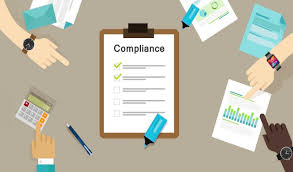 What does it mean to be “competent to practice law”? What do attorneys think it means? More to the point, what do clients think it means? Attorneys face diverse, often unrealistic expectations when it comes to intellectual, emotional, financial, and logistical tasks. Diligence involves anticipating and preparing for these challenges. Competency, however, means recognizing limitations before your commitments exceed your capabilities. The key lies in managing expectations effectively.
What does it mean to be “competent to practice law”? What do attorneys think it means? More to the point, what do clients think it means? Attorneys face diverse, often unrealistic expectations when it comes to intellectual, emotional, financial, and logistical tasks. Diligence involves anticipating and preparing for these challenges. Competency, however, means recognizing limitations before your commitments exceed your capabilities. The key lies in managing expectations effectively.
Aligning expectations and limitations.
Here are some suggestions for best practices at your firm:
Use case or practice management software to track deadlines and tasks; measuring the demands placed upon you and your staff will give you the lead time needed to recruit help, refer out, or ask for a continuance. Utilize rules-based calendaring software integrated with practice management tools to automatically track court deadlines for specific matters.
Establish protocols for case handoffs and collaboration; when passing work to another – either inside or outside the firm, their work reflects on your competency. Implement a system to always know the status of an inquiry or an assignment. Utilize case or practice management software that allows for easy sharing of upcoming deadlines with clients and team members.
Implement a system for ongoing legal education and training; Identify your primary areas of practice and stay current on core knowledge of the law and the concomitant process for these service areas.
Embrace technology that provides accessible and flexible learning options, such as implementing a learning management system (LMS) that specializes in CLE.
Consider a peer review process for legal work; no pleadings should leave the firm without being reviewed by another person. If you are a solo practitioner, find a trusted colleague to review your pleadings. At the very least, use a predictive text program to review your content for continuity.
To optimize your firm’s performance, focus on continuous learning, effective case management, and meeting client expectations. Crosspointe Consulting Group offers tailored solutions to maintain your firm’s competency and efficiency. For a free introductory call to discuss how we can help your firm, contact Dana or David at Crosspointe. Visit our website to learn more about the PMBR Checklist and take another step towards improving your practice today.
See also:
- Proactive Management Based (Self) Regulation
- Trust Account Management – Fiduciary Duty Meets Financial Sense
- Read more of Dana’s posts
- Read more of David’s posts

At Crosspointe Consulting Group, we recognize that legal professionals often rely on established software platforms to manage their financial and operational needs. With our in-depth knowledge of law office management software and modern accounting applications, we are dedicated to helping you unlock the full potential of these systems. Our mission is to provide expert guidance and support, empowering your firm to operate more efficiently .



